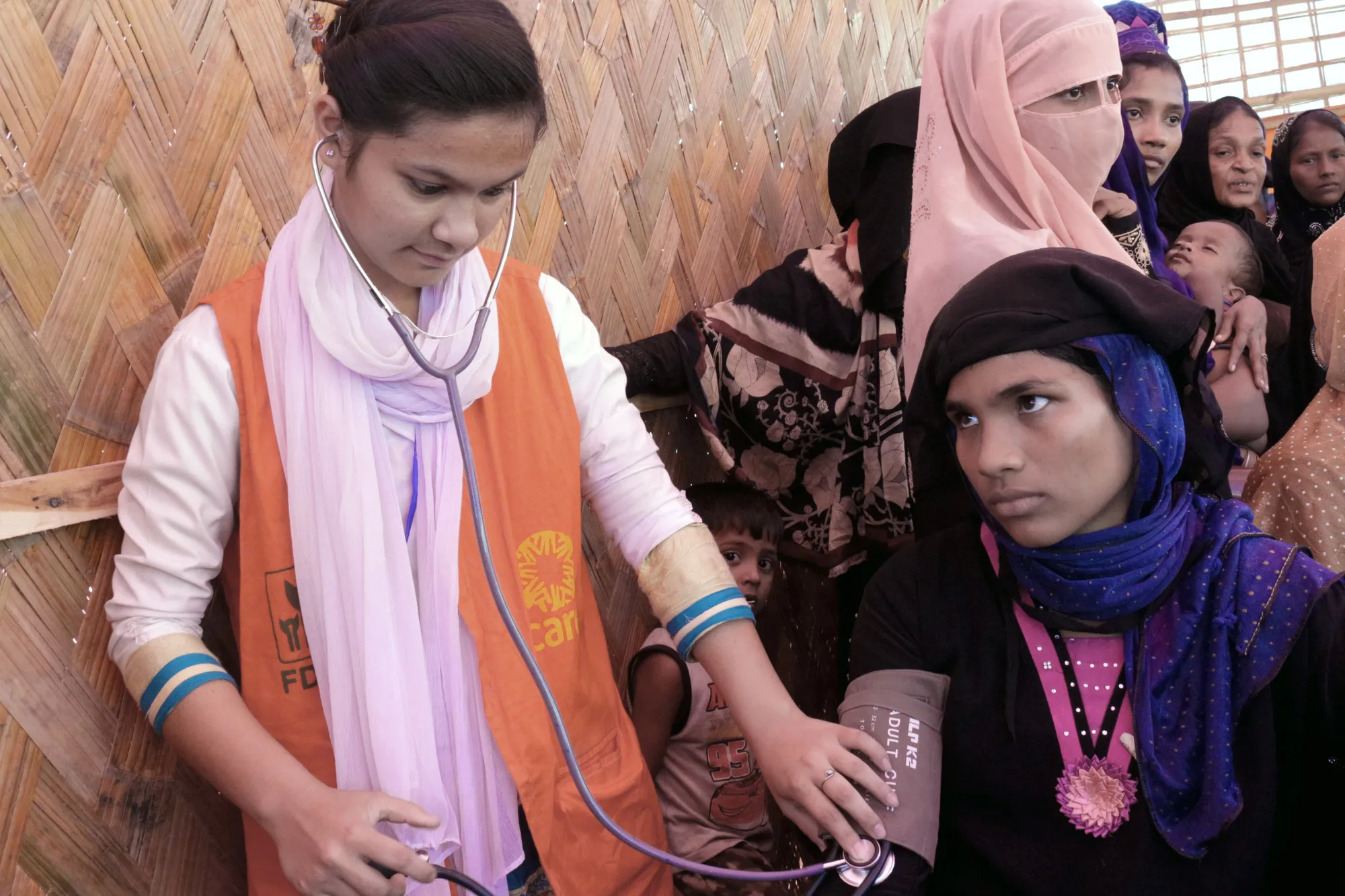The COVID-19 pandemic has stoked worry and anxiety about our health, the health of our loved ones, the interruptions to our children’s education, and so much more. As it spreads, the dangers outbreaks pose will be magnified for the nearly 168 million people around the world already in need of humanitarian assistance and protection. Conflict, inadequate conditions in displacement settings, and constrained resources are likely to increase the need for additional support and funding.
Around the world, CARE is fighting for those most vulnerable, including those who live in crowded refugee camps or in poor, rural communities without access to sanitation. CARE President and CEO Michelle Nunn sat down with CARE’s Director of Humanitarian Planning, Camille Davis, who is mobilizing resources, coordinating logistics, and leading the way for CARE’s global response to COVID-19.
Michelle Nunn: First of all, thank you for all that you’re doing. Would you start by giving us a portrait of CARE’s main concerns amid COVID-19 right now?
Camille Davis: [CARE] shares the same concerns as everyone else facing this crisis, but we’re also particularly concerned about the people that [CARE] serves every day, the vulnerable populations that are not as well equipped to withstand this crisis. There are over 70 million displaced people in the world right now – internally displaced persons, refugees and asylum seekers – that don’t have the ability to stockpile food and hunker down and wait for this to blow over. We’re really concerned about what some are calling the next wave, which is when [the coronavirus] starts to take hold in poor countries with weak health systems or where there are already major humanitarian crises happening. We know that we need to act fast. There’s a really small window of opportunity to prevent the worst from happening and mitigate the effects of this virus in the communities that we work to support every day.

